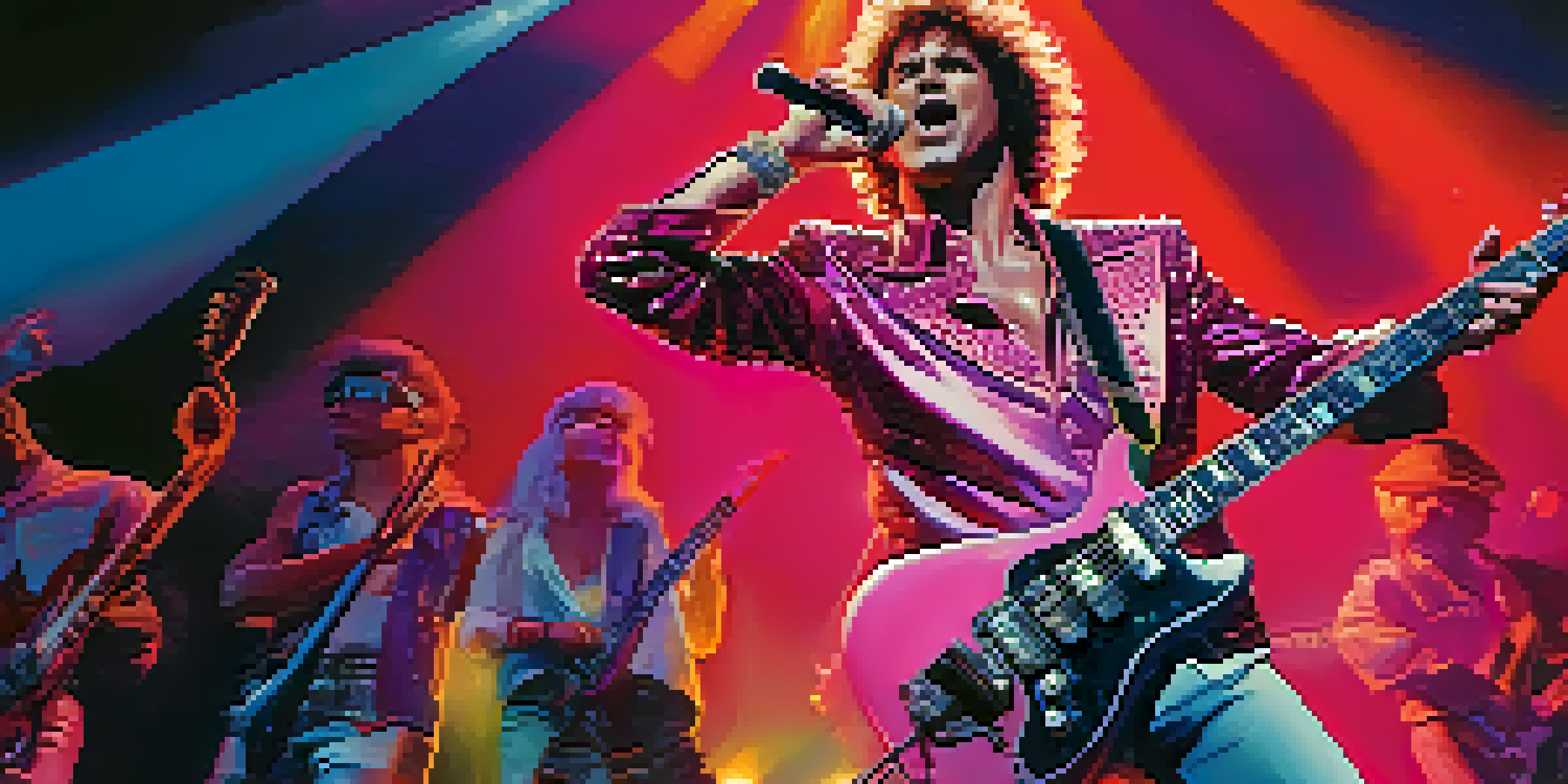How the 80s Guitar Heroes Influence Today's Musicians

The Rise of the Guitar Hero in the 80s Music Scene
The 1980s marked a golden era for guitarists, with legends like Eddie Van Halen and Slash dominating the scene. These musicians not only showcased technical prowess but also brought a flair for showmanship that captivated audiences worldwide. Their electrifying performances set a high bar for aspiring guitarists, inspiring a whole generation to pick up the instrument. The 80s were about more than just music; it was a cultural shift where guitarists became icons, much like rock stars before them.
Signature Styles: How 80s Techniques Live On
One of the most notable contributions of 80s guitar heroes is their unique playing techniques. From Eddie Van Halen's finger-tapping to Randy Rhoads’ neoclassical influences, these styles have become foundational for many modern guitarists. Today’s musicians often incorporate these techniques into their own music, blending nostalgia with contemporary sounds. This fusion not only honors the past but also pushes the envelope of what guitar playing can achieve.
80s Guitar Heroes Shaped Music Culture
Legends like Eddie Van Halen and Slash not only showcased technical skills but also became cultural icons, inspiring a generation of guitarists.
Influence on Genres: Rock, Metal, and Beyond
The influence of 80s guitar heroes extends beyond rock and metal, trickling into various genres like pop and even hip-hop. Artists such as Post Malone and Billie Eilish have drawn inspiration from the guitar-driven melodies of the past, incorporating them into their modern tracks. This cross-genre pollination showcases how timeless guitar riffs can resonate with diverse audiences, creating a bridge between generations. It's a testament to the adaptability of these classic sounds in today’s music landscape.
Iconic Albums and Their Lasting Legacy
Albums like 'Back in Black' by AC/DC and 'Appetite for Destruction' by Guns N' Roses are not just milestones; they are blueprints for modern music. These records emphasized the importance of guitar solos and riffs, inspiring many contemporary artists to focus on crafting memorable guitar parts. Their enduring popularity shows that great music transcends time, influencing countless bands and solo artists currently on the charts. The legacy of these albums is a powerful reminder of the guitar's role in songwriting and composition.
Timeless Techniques Influence Modern Music
The unique playing styles of 80s guitarists continue to resonate today, with contemporary musicians blending nostalgia into their sound.
Fashion and Persona: The 80s Style Influence
Beyond music, 80s guitar heroes also shaped the fashion and persona of musicians today. The flamboyant outfits and larger-than-life personalities of stars like David Lee Roth and Prince set trends that continue to inspire artists. Modern musicians often adopt elements of this style, merging it with their own to create a unique image. This blend of music and fashion creates a multi-faceted identity that resonates with fans, proving that appearance and sound are closely linked.
The Role of Technology: Pioneering New Sounds
The 80s were a time of innovation in music technology, with guitar heroes pushing boundaries through the use of effects pedals and synthesizers. This embrace of technology paved the way for today’s musicians to explore new sounds and experiment with their craft. Artists like Tame Impala and The 1975 utilize these advancements, blending vintage sounds with modern production techniques. The result is a rich tapestry of music that pays homage to the past while remaining firmly rooted in the present.
Collaborations Bridge Generations
Recent partnerships between 80s legends and today's artists celebrate the enduring influence of classic guitar sounds in modern music.
Guitar Education: Teaching the Next Generation
The impact of 80s guitar heroes is also evident in music education, as many guitar teachers incorporate their techniques into lessons. Learning to play
Collaborations: Bridging the Past and Present
In recent years, collaborations between 80s legends and contemporary artists have become increasingly common. These partnerships not only celebrate the legacy of iconic guitarists but also introduce their timeless styles to a new audience. For example, when Slash teams up with modern rock bands, it creates a beautiful blend of classic riffs with fresh perspectives. This bridging of generations highlights the enduring relevance of 80s guitar heroes and their influence on today’s music scene.